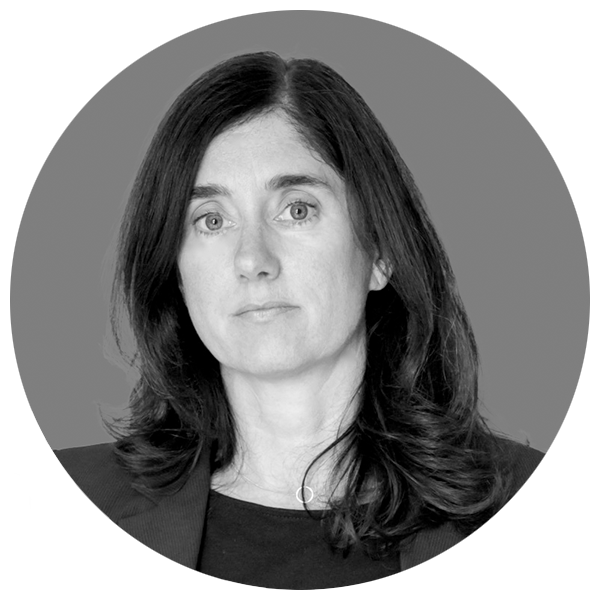Pace for impact
![{[downloads[language].preview]}](https://www.rolandberger.com/publications/publication_image/ta43_en_cover_j_download_preview.jpg)
In the new edition of Think:Act Magazine we explore the benefits of a calmer pace of life and business, and learn from the success of slow companies.


by Helene Laube
Photos by Julia Sellmann
Enterprises don't always have to pursue breakneck growth to build a successful business. Many companies spurn the "grow or die" mantra that prioritizes expansion above all else and instead choose a more deliberate and sustainable path to success.
74%: How many high-growth internet startups will fail as a result of premature scaling, based on data from over 3,200 technology startups.
Source: Startup Genome
Months before the dotcom bubble burst, back in 1999 technology startups were still on a tear. Most focused on rapid growth as a primary strategy: VC investments reached a fever pitch and tech stocks traded up to dizzying levels. Despite the popular approach of the era, in Chicago, the founders of 37signals decided to take an entirely different tack with their startup: to consciously limit the pace of growth instead of growing at hyperspeed. "I'm a fan of growing slowly, carefully, methodically, of not getting big just for the sake of getting big," Jason Fried, co-founder and CEO of what was then a web design firm, told Fast Company. Fried and his co-founder David Heinemeier Hansson were instead driven by a desire to build a sustainable, consistently profitable business while maintaining control over their product, culture and work-life balance. This approach also allowed them to focus on what they considered most important: creating excellent products and providing exceptional value to their customers.
A quarter century later, 37signals is still going strong, with paying customers in more than 160 countries. The web design firm has turned into a software company best known for developing software-as-a-service (SaaS) products such as the project management platform Basecamp and the email service Hey. Fried and Hansson have no intention of changing their approach. On the contrary: Their underdog mindset persists. They still pursue measured growth and keep challenging much larger tech companies such as Asana or Salesforce.com-owned Slack with their tiny, fully remote team of about 70 employees spread out across five continents.
"We want the best for people – not only get the most out of people."
According to Fried, their company could be much bigger and have hundreds of employees if they wanted to. "Our revenues and profits support that – but I think we'd be worse off," Fried said in the interview with Fast Company. What's more, to this day, 37signals has, in its own words, "no investors, no board of directors, no eyes on an exit." As Brian Bailey, head of product strategy, explains in an interview over Zoom from his home office in Austin: "We want the best for people – not only get the most out of people." The company is not "obsessed with a specific metric" that it's trying to reach or specific goals. "We are just trying to build a business that we love, that's sustainable and that's profitable every year." For 37signals, profitability means freedom. That is the "fundamental premise" that the founders build their business on. "As long as we're profitable, we do not have to ask other people for permission," Hansson told a podcaster.
37signals demonstrates that highly successful companies don't always have to pursue the more familiar model of "growth at all costs and a fast ramp-up" in order to build a sustainable business. In fact, there are plenty of cautionary tales, and especially in the tech world which is littered with hypergrowth companies that have yet to show profits or that grew too fast and crash-landed. There are, however, also many companies that deliberately chose a more measured approach and focused on a slow build to reach critical mass.
Going for sustainable, profitable growth can enable companies to build a stronger, more resilient business that is better positioned for long-term success in a rapidly evolving marketplace. They can ensure they have the necessary infrastructure, resources and systems in place to support their growth over the long term without compromising on quality. And while rapid growth can compel businesses to take on debt or stretch their resources thin to fuel expansion, a more measured approach allows them to grow at a pace that is financially sustainable, minimizing the risk of failure. It's also more feasible to build strong relationships with customers, suppliers and other stakeholders over time, and to adapt and respond to changes in the company or market more effectively.
What's more, a strategy of controlled expansion and varying the pace doesn't have to come at the expense of product innovation. The 37signals founders, who are known to treat the company as something of a lab for innovative workplace practices, invented a methodology they call "Shape Up." It asks all teams including software developers to consolidate their work designing, developing and shipping software into six-week cycles focused on a small number of clear goals. Each cycle is followed by a two-week cool-down period in which employees can recharge and regroup by fixing small problems and take time to consider what to tackle next.
The speed at which you approach your goal can launch your success …
The software firm 37Signals relies on breaks after intense six-week development periods. According to Brian Bailey, the company’s head of product strategy, this period is long enough to develop some good rhythm and make meaningful progress, but short enough that teams can see the end from the beginning and not burn out.
… or it can set you up to crash:
Fueled by venture capital, WeWork grew aggressively, amassing nearly 800 locations in 39 countries. In early 2019, it was worth $47 billion. But later that year, swift growth at the expense of profits led to the ousting of the CEO and the derailment of the initial public offering. In November 2023, WeWork filed for bankruptcy.
The cult of speed in entrepreneurship has come under increased scrutiny in recent years as owners and investors have begun to realize the potentially detrimental impact on a company's long-term value. According to Robert Sutton, a Stanford Graduate School of Business management professor, what he calls "strategic slowness" will "be the key to success for innovative leaders and companies" in 2024. "Knowing when and how to slow down and fix things is the path to enduring financial success, building healthy workplaces, and staying out of jail, too," Sutton replied to a journalist when asked to identify the "next big thing" for 2024.
However, Harvard Business School Professor Thomas Eisenmann doesn't see a general slower-growth trend taking hold – except for more caution when it comes to hypergrowth that leads to "dysfunctional consequences for society" or unsustainable hypergrowth in cases like the failed flexible workspace provider WeWork [see box "The importance of pace"]. "But I don't think that 2024 is a year where venture capitalists are thinking in new ways and hoping for slower growth – they want growth," says Eisenmann in an interview.
It's important to recognize that there are some structural attributes of a market that force a business to grow quickly, adds the expert in growth strategies for startups and author of the book Why Startups Fail, in which he examines how too-fast growth is a problem for many companies. One attribute is network effects where customers attract other customers. An example is Zoom. When more businesses, schools and people in a social group adopt a videoconferencing platform, more nonusers will have to use it or will be incentivized to use it in order to communicate with the social group. "If you don't invest in fast growth in a business like that, you're going to be left behind," says Eisenmann.
"Could we grow faster? Yes. Is that good for the health of the brand? No."
There are plenty of examples of companies from sectors other than tech who chose measured growth. Many not only survived but thrived. One is the sneaker brand Hoka, founded in 2009 by two French trail running enthusiasts and former employees of French sports equipment manufacturer Salomon. The company was sold in 2012 to California-based Deckers Brands, which eschewed a larger distribution footprint for its bulbous sneakers in psychedelic colors until it was ready. Hoka became the fastest-growing sneaker brand in history, breaking the billion dollar mark in sales in 2022 – growing fast by moving more slowly than its success would have made possible. "Could we grow faster? Yes," said CEO Stefano Caroti, who was then Deckers' chief commercial officer, in an interview with The Wall Street Journal. "Is that good for the long-term health of the brand? No." Hoka's executives are still pacing themselves and realize that trying to win every single consumer is often how a company loses its identity.
Japanese fashion brand Uniqlo, for its part, chooses to ignore fashion trends and sticks to its core offerings, planning everything a year in advance – contrary to the holding company's name Fast Retailing. The Tokyo-based company's "LifeWear" is inspired by the most classic clothing designs to provide apparel that lasts from the initial purchase to a life of wear. Unlike fast-growing fast-fashion chains like Zara or H&M, Uniqlo clothing isn't made to be tossed out but to serve as affordable quality clothing that can be worn for years. "We don't chase trends. People mistakenly say that Uniqlo is a fast-fashion brand. We're not," Fast Retailing founder and CEO Tadashi Yanai said in an interview with Business Insider.
78%: How much the stock of Hoka's parent company, Deckers Brands, increased in 2022, the year the sneaker brand hit the billion dollar sales mark.
Source: Business Insider
In an arguably even faster industry, iconic American fast-food chain In-N-Out Burger has chosen to go it slow since 1948. The Southern Californian company has focused on growth primarily on the West Coast and a slow expansion eastward to Nevada, Arizona, Utah, Oregon and more recently Texas and Idaho. The company that has long been heralded as the "it" fast-food restaurant by its legions of fans now operates more than 400 locations in eight states. Despite customers begging for locations on the East Coast, the company has declined.
The number one reason is logistics. In-N-Out has a strict policy of serving its food fresh. Therefore, all locations must be within 300 miles of its patty-making facilities in California and Texas. A large-scale expansion would require a massive amount of upfront capital, unless it franchises its restaurants. And Lynsi Snyder, In-N-Out president and the founders' granddaughter, has made it clear that the privately owned company will "never" franchise its restaurants or go public.
Yet In-N-Out is inching further east. The company has announced plans to open an eastern corporate office and several restaurants in Tennessee. The first restaurants in the Nashville area should open in 2025. With this $125.5 million expansion, In-N-Out is diverting from its 300-miles strategy. Per Snyder, these locations will be supported by In-N-Out's Texas meat facility almost 700 miles to the west. But she hinted that the Tennessee expansion will be followed by future restaurant openings in Washington and New Mexico, taking the private company into uncharted territory.
On the other end of the spectrum, many companies in traditional industries have focused on quality over quantity. In the case of cheesemaking, this is only partially a matter of choice, because an essential component of making good quality cheese is patience. "While the rewards are many, the business requires focus, strategy, commitment, patience, passion and lots of long hours," said Jill Giacomini Basch, co-owner and chief marketing officer of the Point Reyes Farmstead Cheese Company, an artisan cheesemaking company that grew out of a family dairy farm north of San Francisco.
For ten years, the company focused on making only one type of cheese – blue cheese. Only in 2010 it introduced Toma, a more subtle cheese. Eventually, slowly, the Point Reyes Farmstead Cheese Company expanded its offering to five different types of cheeses flavored by sea air and forest-lined marshes. According to Giacomini Basch, she and her sisters are first and foremost stewards of the land and animals in hopes of maintaining it for future generations.
Pursuing more deliberate instead of breakneck growth – whether it be in cheese or burger making, sneaker or software production – benefits companies by ensuring quality, helping to maintain financial stability, fostering adaptability and building strong relationships, ultimately leading to sustainable success in the long term. Or, as 37signals' Brian Bailey puts it: "Why can't more companies find the level of company that they want to be, find that level of sustainable growth for them and be satisfied with that? Why does it always have to be more, more, more?"
![{[downloads[language].preview]}](https://www.rolandberger.com/publications/publication_image/ta43_en_cover_j_download_preview.jpg)
In the new edition of Think:Act Magazine we explore the benefits of a calmer pace of life and business, and learn from the success of slow companies.




